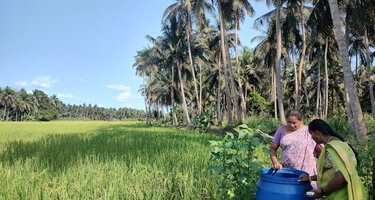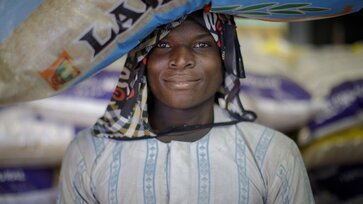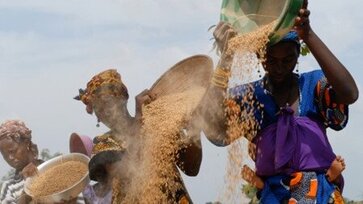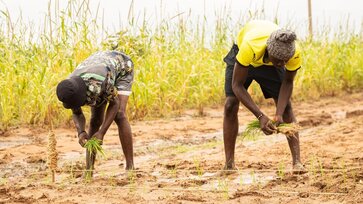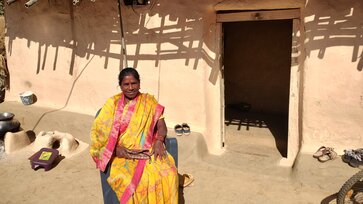From India to Nigeria: Kicking Off Climate-Friendly Rice Cultivation with Private Sector Partner
After the successful implementation of climate-friendly rice cultivation in India, the “Carbon Offsetting Rice Emissions” (CORE) project has now started its implementation phase in Nigeria in collaboration with key private sector partner Olam Agri.
Rice cultivation accounts for about 11% of agricultural greenhouse gas emissions, mainly methane. CORE aims to reduce these emissions and create incentives for smallholder farmers through a benefit-sharing system in which smallholder farmers are compensated for adopting climate-smart practices. Building on valuable experience from the successful implementation in India, the CORE project has now officially kicked off its implementation phase in Nigeria. While the official national launch is scheduled for Q3 2025, recent planning workshops have laid the groundwork for field-level activities to begin, marking an important milestone for the project’s engagement with smallholder farmers, rice value chain actors and carbon project developers.
In Nigeria, the project will focus on farm practices such as Alternate Wetting and Drying (AWD) and Biochar production and application, alongside exploring Post-Harvest Loss (PHL) reduction strategies. Within all practices, the feasibility of women’s empowerment through entrepreneurship is being explored.
The implementation in Nigeria happens in close collaboration with Olam Agri, one of the country's largest rice processors and buyers. The consortium aims to embed climate-smart practices into the existing rice value chain, with a special focus on supporting smallholder farmers. Carbon revenues will co-finance activities that mitigate greenhouse gases while strengthening the domestic rice sectors efficiency and resilience. At the same time, carbon certification methodologies are being developed and/or adapted to the local context and submitted to international standard setters. Methodologies are a prerequisite for preparing carbon projects, which enable the generation of carbon credits in the future.
The project in Nigeria draws on practical experience gained in India, where CORE has already been implemented since December 2022 in three states (Andhra Pradesh, Haryana, and Madhya Pradesh) in a consortium with Olam Agri, UN Women and the International Rice Research Institute (IRRI). In India, by the end of 2024, 12,000 farmers have been trained, of which 90 % are women, and more than 15,000 tonnes CO₂eq emissions have been avoided through the introduction of AWD and Natural Farming. The development of a Project Design Document under the VERRA methodology (VM0051) has been initiated, as the basis for the generation of carbon credits, while IRRI supports the advancement of three methodologies under the Gold Standard.
This cross-country learning serves as an asset not only for Nigeria, but also for India and other countries engaged in a South-South Exchange (Thailand, Vietnam and Cambodia). Training materials and insights from India are already being adapted to local conditions in Nigeria, particularly around AWD implementation. As Mrs. J. Naggaveni, a farmer from India, Andhra Pradesh, put it: “AWD helps save water, and natural inputs keep the soil healthy. When we combine both, farming becomes stronger and safer.” As a Community Resource Person under the CORE project Mrs. J. Naggaveni has helped others to adopt sustainable farming practices. The Indian experience also highlights the importance of gender transformative approaches in climate action. As Mrs. J. Naggaveni further reflects: “These training sessions [on gender] gave me a platform to express my thoughts and grow into the person that I am today […] I now take the initiative to guide and encourage other women to attend these sessions and understand the real issues we face.”
While CORE Nigeria is just beginning its implementation journey, the foundations are being laid for inclusive and low-emission rice production. With strong private sector collaboration and a focus on scalable, evidence-based solutions, the project aims to contribute to both climate mitigation and economic empowerment in Nigeria’s rice sector.
CORE is implemented under the Fund for the Promotion of Innovation in Agriculture (i4Ag).
